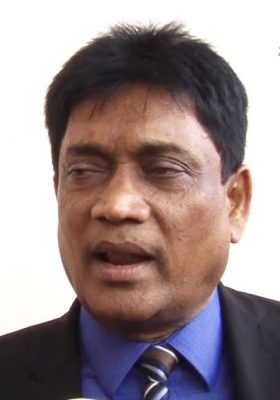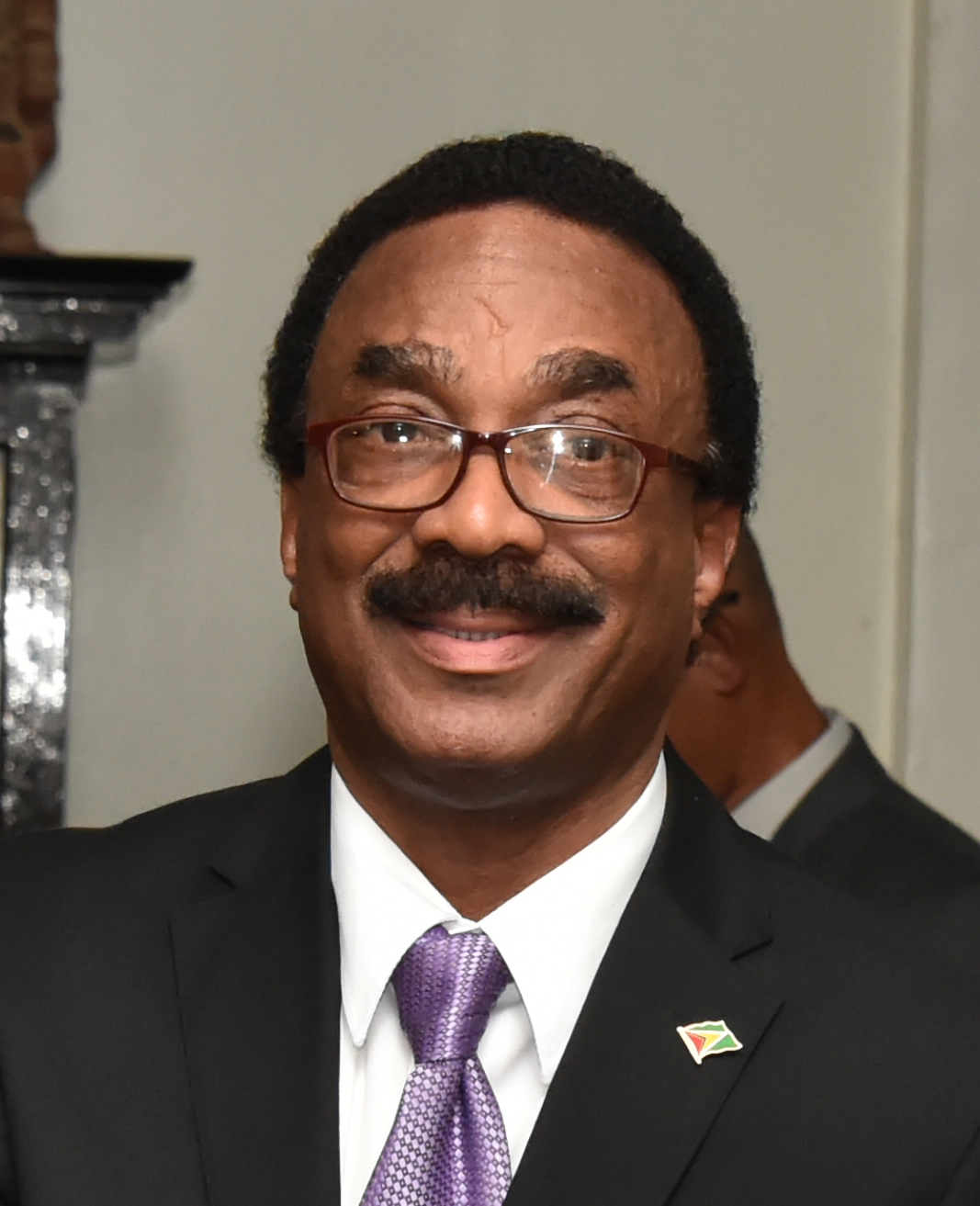With the Caribbean Court of Justice (CCJ) having completed hearing arguments on the controversial passage of the December 21st no-confidence motion against government, the state is now seeking to have new evidence admitted.
Through its Attorney General Basil (AG) Williams SC, government is seeking the permission of the Trinidad-based court to adduce a purported admission by government defector Charrandass Persaud, who voted in favour of the opposition-sponsored motion, that he was aware that he was not eligible to be a Member of Parliament (MP).
Williams is saying that certain evidence has recently become available to him, “and which will probably have an important influence on the outcome of this appeal, and which is credible.”

Persaud’s lawyer Sanjeev Datadin has, however, said that Williams has simply taken comments made by his client out of context and is using them to delay the work of the court.
In an invited comment, Datadin said, “it is a symptom of desperation on the part of the Attorney General that he would take a comment entirely out of context and seek to mislead the Guyanese people that it will somehow be relevant and seek to delay or interfere with the court’s work.
According to Datadin, if the AG and the government would just listen to the entire recording and interview, “they will realize what they are trying to say was not said.”
The lawyer indicated to this newspaper last evening that he was preparing an affidavit in answer to Williams’ application, which he intended to have had filed before the end of the night.
Williams said that on May 11th 2019, the day after oral arguments were heard by the court, Persaud, gave an interview which was broadcast on the internet and in which, among other things, he said “I knew that people with dual citizenship could not hold a seat in parliament.”
Article 155 (1) (a) of the Constitution, provides, “No person shall be qualified for election as a member of the National Assembly who is, by virtue of his or her own act, under any acknowledgment of allegiance, obedience or adherence to a foreign power or state.”
Williams underscored that an important issue in the state’s case revolves around whether Persaud knew that he was unqualified to be a candidate, which would have resultantly disqualified him from sitting in the National Assembly.
The AG says of himself, “the Attorney General could not have discovered the new evidence before the hearing of the appeal and the Attorney General believes that the application for permission to adduce new evidence can fairly be dealt with without a hearing pursuant to Rule 9.7.” of the CCJ Appellate Jurisdiction Rules.
State Solicitor Jennifer Ayana McCalman, in her affidavit on behalf of the AG, said that on Wednesday she was informed by Williams that it had been brought to his attention on Monday that there was a YouTube video in which Persaud was interviewed.
She said that having been provided with the link, she listened to the programme, ‘Globespan 24×7,’ moderated by Salaudeen Nausrudeen and focusing on the topic ‘Conflict of Interest of Guyana.’
The programme can be found at https://www. youtube.com/watch?reload=9&v=gIFpQkPMlw().
She said that at approximately the 30-minute point, questions were posed to Persaud, who had called in, as to whether or not he knew that he could not sit in the House because he also had Canadian citizenship.
McCalman said that Persaud responded by saying, “I knew that people with dual citizenship could not hold a seat in parliament. That was given, that’s a constitutional article that, we can’t get away from. What I did in fact argue, and when I told Khemraj ( Ramjattan), I said I have a Canadian passport, Khemraj said ‘r*** with you, a lot of people have Canadian passports, look at Gail Teixeira’ and that’s what he said.”
The state solicitor said that it was the first time that she had heard Persaud admit that he knew that people with dual citizenship were not qualified to sit in the National Assembly. She said it was also the first time she heard him say that he was aware of the constitutional provision that disqualified persons with dual citizenship from sitting in Parliament.
In order to make his case, McCalman said that the AG has so far had to rely on circumstantial evidence to infer that Persaud knew he was disqualified when he voted on 21st, December 2018.
Against this background, she advances that “the new evidence is very relevant and if admitted could influence the court’s consideration and determination of this important issue.”
According to McCalman, the programme was styled as a town-hall meeting and persons were allowed to call-in. “From what I observed and heard, Mr. Persaud spoke freely and appeared to be relaxed and open in his responses to the issues raised with him,” McCalman said, adding, “I know of no reason why the new evidence should not be believed.”
She said that the AG is fully aware that argument in the case before the court has long ended, and that there is a desire of all the parties to have the matter determined as soon as possible.
She, however, contends that the new evidence is important and was not available to the Attorney General before the hearing of the case at the CCJ.
She said that Williams is of the belief that very short timelines can be set for the filing and exchange of submissions and that the application does not necessitate an oral hearing and he is therefore asking the court, if so minded, to dispose of his application “on paper.”
Further to his request to adduce the “new evidence,” Williams is also hoping that the CCJ would grant him permission to make submissions on whether that evidence should be admitted, and, if admitted, the relevance of it to the outcome of the appeal.
He also wants an order that further submissions be made in writing, and that directions be given for the filing and exchange of further written submissions; an order that time be abridged for the disposition of his application; and an order that the application for permission to adduce new evidence be dealt with without a hearing pursuant to Rule 9.7.
The CCJ, Guyana’s court of last resort, had designated two full days—May 9th and 10th – during which the appeal was fully heard and argued.
The President of the court, Justice Adrian Saunders, thereafter informed that notices will be sent announcing when its ruling will be delivered.
Among its arguments, the government contends that the motion was invalidated on the basis that Persaud sat in the National Assembly in violation of the Constitution because of his dual citizenship.
In keeping with pronouncements made by the Guyana Court of Appeal, all dual citizen MPs on both sides of the House have since resigned.
Though initially accepting the motion to have been validly passed, government days later did an about-face, arguing that the proper majority needed for passage of the motion was 34 votes, which represents an “absolute” majority as opposed to a “simple” majority of 33.
The state’s case is that in Guyana’s 65-member National Assembly, half would result in a fraction of 32.5, which has to be rounded to the next whole number, 33, and that in accordance with the practice and the application of the meaning of what is needed for an “absolute majority” one has to be added to calculate that required majority, 34.
The no-confidence motion, sponsored by Opposition Leader Bharrat Jagdeo, was declared passed by House Speaker Dr Barton Scotland following a vote in its favour by then APNU+AFC parliamentarian Persaud on the night of December 21st.
Following a challenge by government in the High Court, Chief Justice (Ag) Roxane George-Wiltshire found that even though Persaud was made a parliamentarian in violation of the Constitution, his vote was valid and that the motion was validly passed with the votes of 33 elected members of the 65-member Assembly. She has also ruled that the passage of the motion should have triggered the immediate resignation of the Cabinet.
The Guyana Court of Appeal, by a majority decision on March 22nd, overturned the Chief Justice’s ruling, saying that the correct mathematical formula for finding the “absolute” majority was not used.





